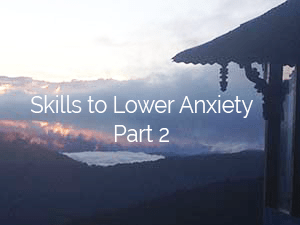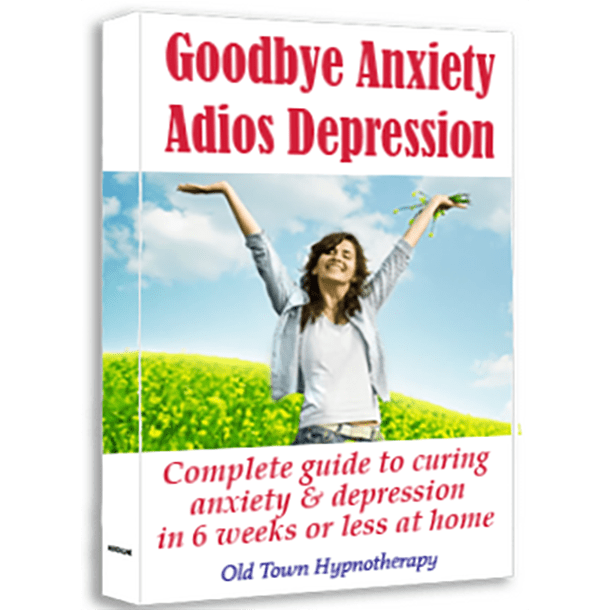What winds you up? Or perhaps the questions should be ‘who’ winds you up?
In Skills To Lower Anxiety Part 1, I talked about practicing of patience, a skill I need to practice in particular. In Part 2, we’re going to be focusing on another skill, Acceptance.
Acceptance covers a multitude of things including things you cannot change and people, but should not be confused with apathy. Apathy could be described as undesirable circumstances that could be changed but you choose to accept those circumstances rather than take the course of action required to effect change. For example, you might be unhappy in a job, getting bullied by someone or in a relationship that is unfulfilling – should you accept it or do something about it? I would say start making steps towards changing it, don’t use acceptance as an alternative to fear of change.
There is a famous quote called ‘The Serenity Prayer’ which goes like this:-
Give me the serenity to accept the things I can’t change
Give me the strength to change the things I can and
Give me the wisdom to know the difference
That saying had a very profound effect on me when I was working in Nepal twelve years ago running a fair trade production centre helping girls who had been trafficked establish a sustainable alternative income for themselves. There was poverty and suffering all around me, stray dogs looking so pathetic it was hard not to want to take them all in, street children begging having been sent out to target foreigners by unscrupulous traffickers, but rather than get upset and frustrated that I couldn’t do more, I had to learn to know where I could help and accept that I couldn’t do everything.
But I digress, that’s not so relevant to our modern western society today, nevertheless, it is still a powerful lesson especially when we are suffering from anxiety and/or depression.
Depression has a tendency towards apathy in a mistaken act of acceptance. The negative self talk and negative introspecting of one’s self and life gives way to an attitude of hopelessness. Remember – it’s the depression, it isn’t you and perhaps the second line ‘Give me strength to change the things I can’ is the helpline for depression. To learn more about how you can create the strength to change the things you can, you need to read my eguide series for depression.
But for anxiety sufferers I think ‘Give me the serenity to accept the things I can’t change’ is more pertinent.
In today’s world frustrations born out of impatience and inability to control certain things leads to anxiety, stress and anger, for example:
- You need to need to upload a video and the internet is playing up
- There’s a traffic jam on the way to work or to pick up the kids from school
- Something hasn’t arrived in the post you’ve been waiting for
- The telephone repair service can’t visit for another 2 days
- Your partner hasn’t replied to a message
- You don’t know what might happen if …. (fill in the blanks for yourself here)
- You’re waiting to hear about something
Ambiguity or ‘not knowing’ about something is a particularly sensitive stress point for anxiety, especially about the future.
An equally important element of ‘acceptance’ is of other people. Acceptance of other people is a skill that can only bring joy and happiness into your life where before there might have been judgment, resentment, unhappiness and anger.
You cannot change other people, you can’t control how they think, what they believe or the actions they take, but you can change your attitude towards them and you can change the way you think about it.
Everyone is different and it is the differences in each and every one of us that make our lives so interesting and rewarding. Accepting and embracing those differences in people and accepting that you don’t know what they are thinking will help you relax with and about other people.
When we don’t understand someone else, what they say or how they behave, the human tendency is to judge them against your own thoughts and actions, for example, if you did or said that, what would be your own motivation in doing so if that was you? Of course they are not you, so judging them in this way will miss the mark every time and it wont affect them, your emotional reaction to your judgment will affect only you.
It is also a very human trait to measure yourself against other people to evaluate your own success based on the people around you or the people you meet. The evaluation is natural but how you then deal with the results of that is a choice you can make. Some people will might look to criticize if they feel they are under par compared with that person, in order to make themselves feel better and find a flaw in their character in order to compensate for what they see as their own inadequacies. Some people might create anxiety for themselves worrying they should be doing better than they are in comparison and put themselves down, while others will embrace the opportunity to enjoy someone else’s company and the opportunity to learn about them whatever their background and perceived success or failure.
You already know what I’m going to say; the person who judges and criticises others or themselves is only causing their own stress, anxiety and anger. The object of their resentment is most likely oblivious to the judgment and it won’t affect their life in the slightest. It might affect them if that criticism is verbalised – you don’t know what other people are thinking or what experiences they’ve had in their life and some unkind or thoughtless words born out of your own insecurities might have an unnecessary lasting affect on the other person.
When you can learn the skill of acceptance of other people with all their faults and flaws, you enrich your own life bringing happiness and joy into it. You accept other people as they are and you will find other people will accept you and be drawn to your openness instead of being wary of your walls. Your subconscious body language will change sending unconscious signals to people you meet that gives you an air of trust and friendliness which will be reciprocated on most occasions. If it’s not, it’s usually because the other person has something going on, it’s not about you.
Last, but certainly not least, acceptance of yourself is something you can always change and control.
Have the serenity to accept the things you can’t change
Have the strength to change the things you can and
The wisdom to know the difference

The 7 day video crash course is for people who are suffering from anxiety and/or depression and experiencing symptoms for example: anger, insomnia & sleep disorders, panic attacks, OCD, IBS, eating disorders,addictions or migraine and headaches, who want to learn the truth behind their conditions and learn what they need to do to be ‘normal’ again.
This 6 Week Intensive Hypnotherapy and Coaching Course is for people suffering fromstress, anxiety and/or depression and experiencing symptoms such as anger, insomnia, panic attacks, OCD, IBS, eating disorders, addictions, migraine and headaches.
…who are sick and tired of feeling sick, anxious and tired and
have decided to take control of their life and learn how to resolve issues and move forwards.
Disclaimer | Privacy Policy | Terms and Conditions
Copyright © OLD TOWN HYPNOTHERAPY 2016 All Rights Reserved



